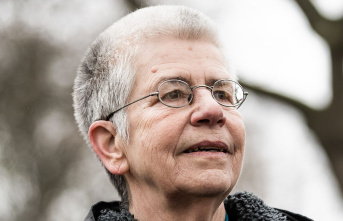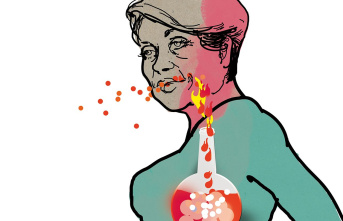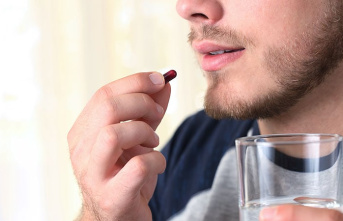According to Politico, a draft of an opinion by the US Supreme Court that was leaked to the media on May 2, abortion could soon be illegal in the United States. John Roberts, the court's chief judge, confirmed that the document of 98 pages is genuine, but it was not final. The court will accept the draft as its final position, even though it is in direct contradiction to the overwhelming evidence of economists and reproductive-and public-health researchers, which points out the devastating, immediate, and unjust impact that this ruling will have upon hundreds of thousands of people.
Justice Samuel Alito, on behalf of the majority, wrote the draft. It is a shocking end to the precedent established by Roe v. Wade in 1973, which declared that abortion rights are protected by the US Constitution. The state of Mississippi is challenging that landmark decision in its case against Jackson Women's Health Organization, the state's only licensed abortion clinic.
When the Supreme Court agreed to hear the case last year, the Mississippi legislature felt empowered. Trump, the former US president, shifted the balance by naming three justices. This gave it a six to three conservative majority. In the past, all six of them have stated that they do not agree with US abortion precedents. In 2006, Amy Coney Barrett, justice, vowed to end the "barbaric legacy of Roe V. Wade". This was before she succeeded Ruth Bader Ginsburg who had fought for abortion rights.
If the 50-year-old precedent ends, 25 US states could outlaw all abortions. Some have "trigger bans" that will go into effect immediately Roe is overturned. Others have moved towards prohibition by enacting laws that restrict the procedure.
Caitlin MYERS, an economist at Middlebury College, Vermont, believes that the bans on abortion in these 25 states will cause so many clinics to close that approximately 18 million women of child bearing age will be more than 200 miles (322 km) from an abortion provider. (See 'If Roe is overturned. In its final decision, due to be published in two months, the Supreme Court may make a different decision than the one that was leaked. Analysts expect that the ruling will significantly curtail abortion, which would put the United States in line with a global trend towards abortion liberalization. Argentina, for instance, legalized abortion last year after it recognized the negative effects on public health. In the last 25 years, 32 countries have also expanded abortion access.
The opposite of 50 years worth of research that has been done around the globe proving that abortion access is an essential component of health care, and important for equal participation of women in society, is the wrong direction. Nature received some of the evidence submitted by US scientific societies, more than 800 US researchers in social sciences, economics, public health and reproductive health to the Supreme Court in preparation for the December hearing.
Knowing what is known can help predict some outcomes of banning abortion. Research predicts that the United States will see a decline in maternal and infant health as a result of the ban on abortion. This is because there will be more unintended pregnancies. Unintended pregnancies can lead to increased health risks for both babies and mothers1, as well as for their mothers2, due to a variety of reasons, including decreased prenatal care.
Overall, expect a decline in maternal health. The risk of dying due to pregnancy-related causes is much higher than the risk of dying as a result of legal abortion. The alarming prediction of an increase in maternal mortality in Black women is especially concerning, as the current rate is unacceptable. Amanda Stevenson, a sociolog at the University of Colorado Boulder, created a hypothetical scenario in which abortions were banned in the United States. She found that non-Hispanic Black women are at greater risk of dying due to pregnancy-related causes.
This is one of the claims made by abortion opponents. It states that abortions do not benefit or even cause harm to women. However, there are dozens upon dozens of studies which contradict this claim. Sarah Miller, a health economist at the University of Michigan in Ann Arbor and her colleagues evaluated around 560 women with similar financial status who sought abortions4. Sarah Miller, a health economist at the University of Michigan Ann Arbor, and her colleagues evaluated around 560 women who had sought abortions. The researchers found that five years after the birth, women who were denied abortions had experienced significant increases in debt, bankruptcies, and other financial problems. However, the financial status of women who had had an abortion was stable or better. Women often say they want an abortion because they can't afford to have a child. This study shows that women are more aware of their financial situation.
The unjust impact of abortion bans on society will be severe. According to a court brief filed before the December hearing, which was signed by over 150 economists and submitted by the court, 75% of women who opt for abortions live in low-income households. Nearly 60% of those women have already had children. People who don't have the means or ability to travel across state lines in order to get care will find it difficult to do so.
Some justices appear to ignore these data, unfortunately. Julie Rikelman (a lawyer from the Center for Reproductive Rights, which is based in New York City), brought up studies in the economists brief. Roberts interrupted her and suggested that she "put those data aside". Alito writes in the draft opinion that it is difficult for anyone, and especially a court, to evaluate the impact of abortion rights on women's lives.
This attitude suggests that justices regard research as secondary to the question whether the US Constitution should allow abortion. This ruling's outcome is not an academic puzzle. The Supreme Court must accept that research, knowledge, and scholarship -- which is the evidence upon which societies must base laws -- show how real lives are in jeopardy. Already, the United States has the highest infant and maternal mortality rates among rich countries. These grim statistics will only worsen if Roe v. Wade is overturned by the court.












